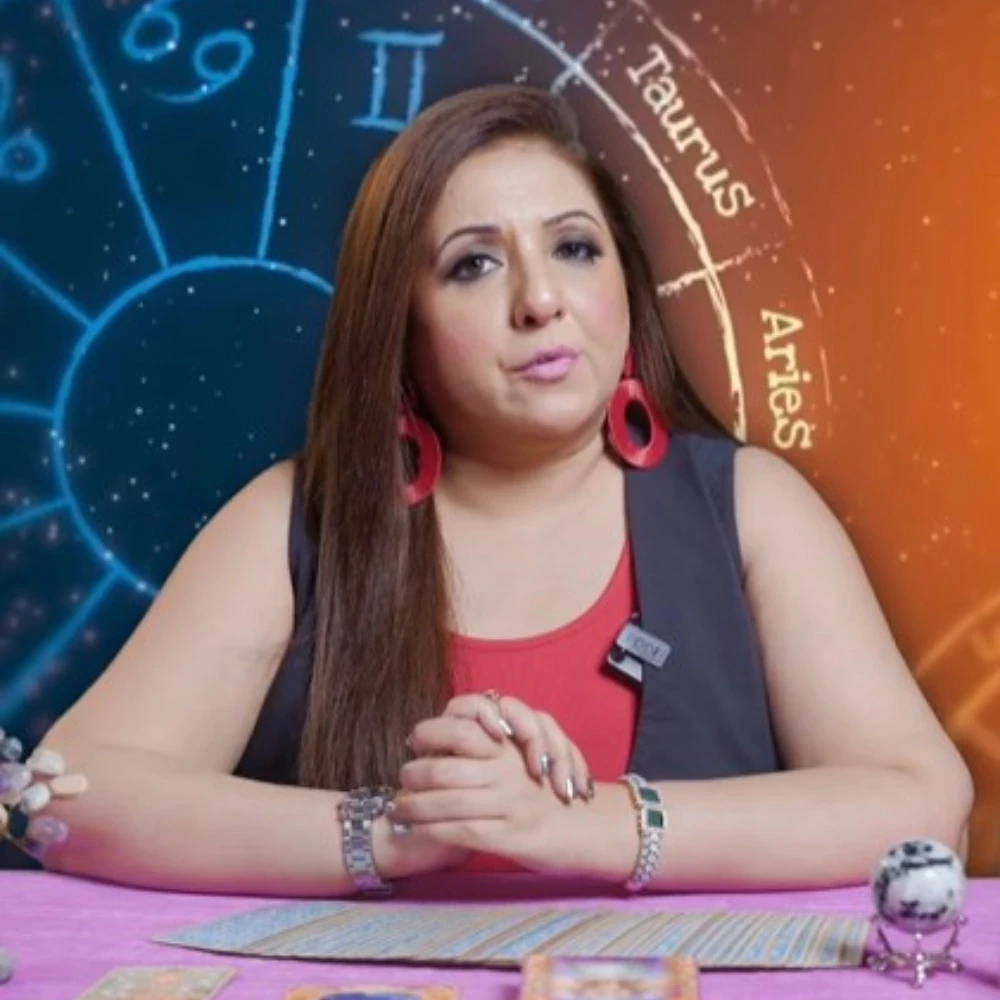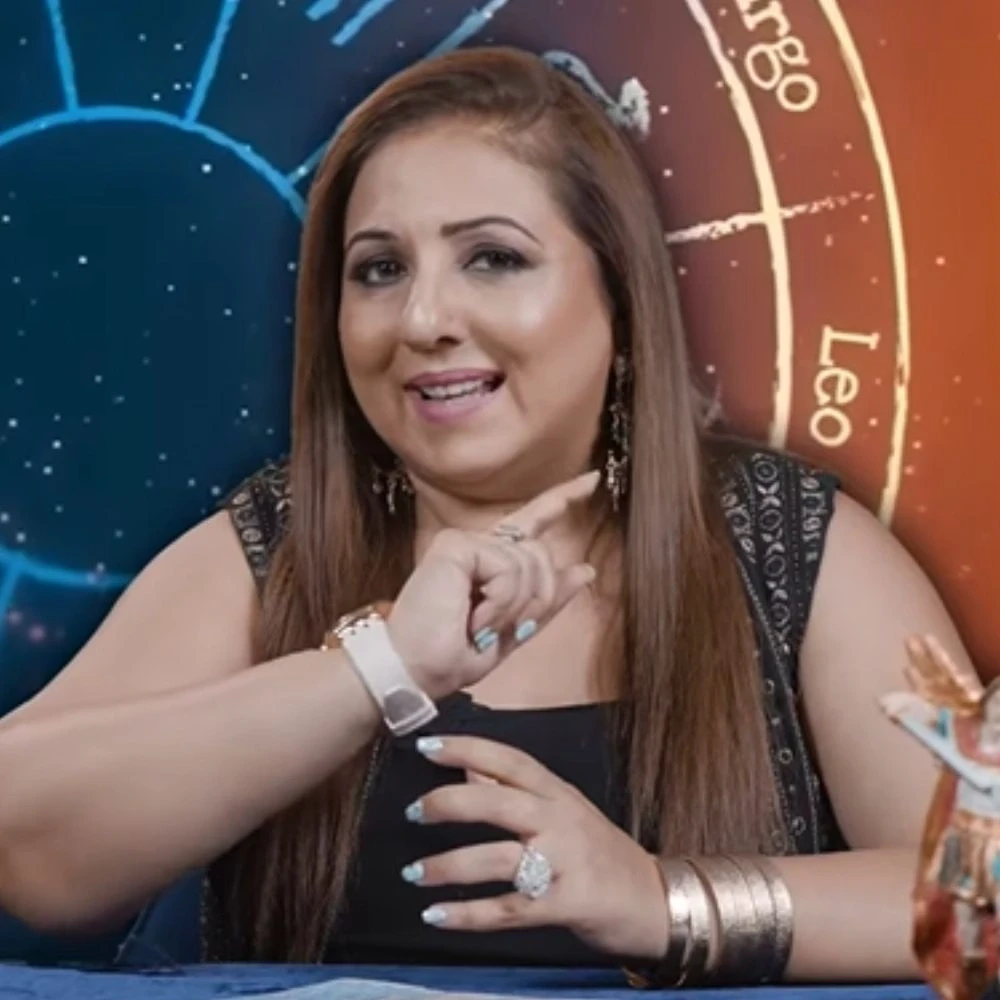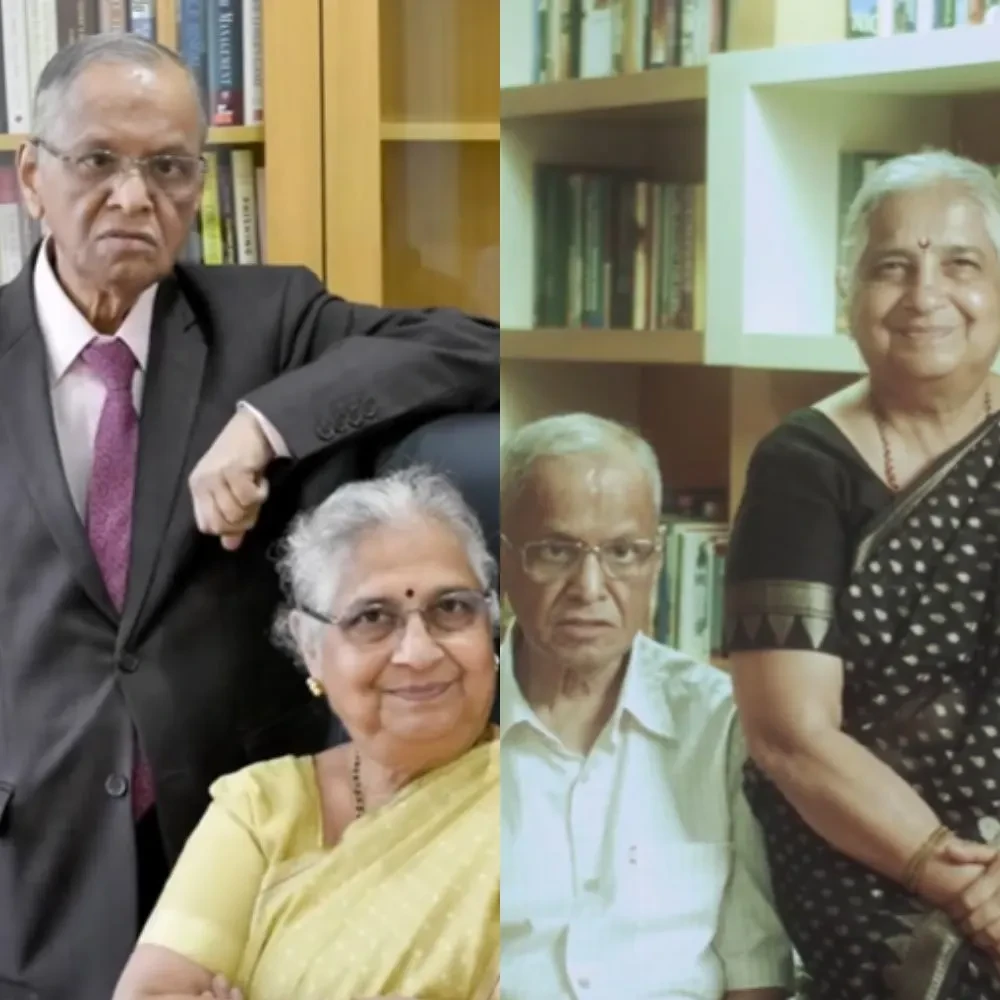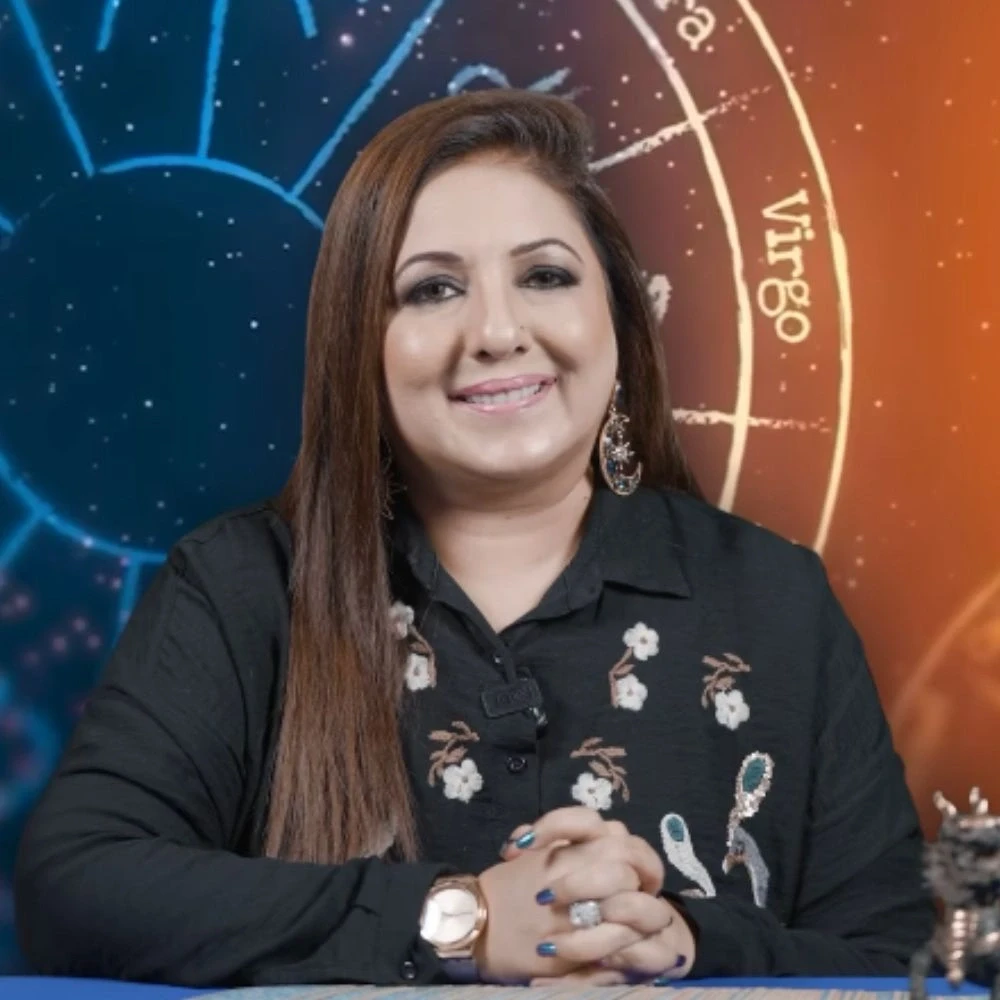20 Signs to Know That You Are In An Emotionally Abusive Relationship (And Tips To Cope)
Gaslighting, manipulation, blame, jealousy - sound familiar? If yes, you probably are dealing with an emotionally abusive relationship. Read on to learn more.

Many people tend to downplay or dismiss emotional abuse because they think it is not as bad as physical abuse. But let us warn you that believing so is a mistake. Dr. Samar Hafeez, Consultant Psychologist and a Certified Holistic Health and Wellness Coach says, “Firstly, let us understand what is abuse- the term abuse commonly refers to physical mistreatment, but it also consists of psychological, emotional and sexual mistreatment”. Emotionally abusive relationships are almost as harmful as physical abuse, leading to mental health issues, including depression, anxiety, low self-esteem, and in a worst case scenario, suicide. For your better understanding, emotional abuse or mistreatment has many forms. While, at times, it may sneak up on you coated in sweet words, a-k-a manipulation. On the other hand, it may come in waves of absolute silence, a-k-a stonewalling or ghosting.. No matter the signs, if you start feeling isolated, confused, powerless, scared, or worthless in your relationship, it's time for you to pay closer attention.
To help you get a better idea, we will talk here about the warning signs or red flags of an emotionally abusive relationship, its types, effects, and the experts' advice or tips to cope, heal, and move on from such relationships. Read on.
(Trigger Warning - This article contains references to emotional abuse, mental illness, mental health struggles, eating disorders, depression, and anxiety.)
What is Emotional Abuse?

When you are in an emotionally abusive relationship, missing out or ignoring the subtle early signs is pretty easy. However, gradually these signs build up to a constant undercurrent of abusive demeanor. You may be familiar with many noticeable red flags of emotional abuse, including manipulating, gaslighting, stonewalling, controlling, criticizing, isolating, embarrassing, bullying, shaming, frightening, blaming, yelling, ridiculing, or otherwise exploiting. Although this type of abuse does not involve physical violence, it does include the threat of violence towards you or your close ones. These emotionally abusive signs are characterized by a person’s actions, words, and behavioral consistency. Oftentimes, emotional abandonment or emotional unavailability is also viewed as emotional abuse.
Such emotional mistreatment may not only be restricted to a romantic relationship. People of any age, gender, or relation (friends, family, colleagues) may abuse or experience abuse.
What Are The Types of Emotional Abuse? 20 Signs Of An Emotionally Abusive Relationship

Have you ever questioned, "am I in an emotionally abusive relationship?" or "how to tell if you are in an emotionally abusive relationship?"
If yes, keep in mind the below-mentioned red flags of emotional mistreatment or an emotionally abusive relationship. If you notice a pattern with any of the following emotional abuse, it's probably time for you to take a step back for your own safety and stability.
1. Manipulation
Manipulation or sweet talking is probably one of the worst yet easiest forms to trick someone into believing you. A person who uses his shallow words to charm you may never have his best interest at heart. Such people only take advantage of your genuine feelings to make you fall for them or pamper them.
However, it is crucial to understand the difference between constant manipulation and effective communication. While manipulation is pure flattery, effective communication or praising your partner (friend or family member) is vital in all healthy relationships.
Nonetheless, if you notice this emotionally abusive sign, it's time to re-think your decision of being with them. At least not until their words back up with their actions!
2. Excessive or Irrational Jealousy
Everyone who has gone through excessive or irrational jealousy knows the trauma that comes with it. While a bit of jealousy in a relationship is considered healthy and cute, irrational jealousy is a typical type of emotional abuse.
So, do you constantly feel like your partner is jealous for no valid reason and creates chaos? If yes, it is a sign that you are in an emotionally abusive relationship.
3. Control, Restrict, or Stalk You
One of the primary reasons that your partner shows signs of jealousy is probably that they might want to control you. An emotionally abusive person always appreciates power to be in their hands, a-k-a narcissistic personality. This power comes when they control, restrict, and stalk you. Also, you will notice that the relationship becomes highly suffocating wherein you cannot even openly express how badly you are being treated.
Most of the time, a person does not even realize that they are being controlled or restricted until a third person notices the signs and tried to discuss them. So, if you did notice these red flags (or if a friend or well-wisher made you realize so), it's time to divide things equally or (well) run!
4. Gaslighting
Gaslighting is a form of psychological manipulation. Basically, your abuser will completely deny the reality of an event. This, in turn, causes the victims to doubt their judgments, memories, mental health, and sanity. Generally, the abuser will try to change the entire perspective in a dismissive manner by claiming them as false, crazy, illogical, or stupid.
This way, the gaslighters get to control you further.
So, while you are unconsciously doubting yourself, your emotional abuser is sitting back and enjoying the show - probably even thinking about consoling with overtly sweet talks to further gain your trust.
If you connected to these points, we would suggest you get out of that emotionally abusive relationship NOW.
5. Excessive Possessiveness
Similar to jealousy, excessive possessiveness is nothing but hurtful in the long run. While a little bit of possessiveness showcases your love, care, or fear of losing the other person. Outrageous possessiveness, on the other hand, is yet another sure-shot sign that you are in an emotionally abusive relationship.
However, unlike the other types of emotional abuse mentioned on this list, a person may not always realize that they are showcasing signs of extreme possessiveness - this may also happen if he/she comes from a super strict family. So, we would advise you to try to discuss the issue with the other person to make them realize it. If they understand your point and are ready to work on it, congratulations! If not, it would be better that you look out for yourself.
6. Isolation
An intentionally over-possessive or controlling person or who displays irrational jealousy only wants to isolate you from your social circle. You must be wondering how will it benefit them.
Well, the more isolated or lonely you will feel, the more you will start becoming dependent on them. And more dependency means they will get to exercise more control over you. Be it in any relationship, the love of power is highly dangerous.
Once you feel isolated or lonely, you will become vulnerable and at your emotional worst. Your emotional abuser will use this to their advantage to make you play by their rules, completely disregarding your feelings.
If you have been a victim and are realizing the sign now, it's high time that you reach out to your friends or someone who can help you to get out of this emotionally abusive relationship.
7. Unrealistic Expectations
How often have you heard someone ask you if you could not even do a particular thing for them? Maybe in the form of unreasonable demands. Or buy them a super expensive gift. Why not bring them the moon?
Furthermore, are they always displeased and dissatisfied with you? No matter what or how much you do for them, they are always complaining and whining that it is not enough. On the contrary, what have they done in return for you? Bare minimum?
Well, the problem is not you. The problem is their unrealistic expectation of you. While they want you to give your everything (and more) to them, they themselves will not even offer you water if you choke.
If this is starting to make sense to you, we are sorry, but you, too, are experiencing signs of an emotionally abusive relationship.
8. Demeaning or Constantly Yelling at You
Are you constantly being yelled at? Are you constantly being put down for expressing your emotions or views? Do you feel afraid to speak up because your partner might start swearing?
Let us understand a basic difference. While it is normal for people to raise their voices slightly every now and then, it is unhealthy when disagreements frequently escalate into shouting and belittling.
If you have been going through this toxicity for a while, it's time to step back from your emotionally abusive relationship.
9. Silent Treatment
How often does your partner give you the silent treatment? Do mood swings define your relationship? How many days does the cold war last? Does your partner completely shut down the moment you do not agree with them? If the answer to these questions scares you a bit, it is a sign that you are in an emotionally abusive relationship.
You should stop blaming yourself. Agreeing on a hundred percent of things is not considered a practical approach in any relationship. Similarly, giving you the silent treatment often is neither healthy nor normal. So, if you regularly find yourself going after the other person to console them after a disagreement, please stop. Save yourself.
10. Criticism and Sarcasm
Sarcasm and positive criticism should always be appreciated as it allows mutual growth and increased affection. However, the red flags appear when the sarcasm and criticism become insulting. Trust us, you will notice the difference between the two. The jokes of your abuser may turn into ridiculing and put-downs and will always target your lifestyle, appearance, eating habits, etc.
Another point to notice here is their reaction to confrontation. A healthy relationship will have space for a heart-to-heart conversation. Contrastingly, in an emotionally abusive relationship, your abuser might start gaslighting you, give you the silent treatment, or yell and swear at you.
Once you notice this type of emotional abuse, think about yourself and your mental health, and leave.
11. No Concept of Personal Space
In the initial days, it is endearing how protective your partner is of you and how they get slightly jealous of the idea of you being with anyone else. However, gradually this protectiveness and subtle jealousy turn into paranoia. That is when it goes from a sweet gesture to a red flag.
Any time they text or call you, are you expected to answer immediately? Are they always questioning/doubting you - who you were with, what you did, where you went, or why were you hanging out with an opposite-gender person? Do they often hide this paranoia by telling you that they are simply worried about you? Are you often left exhausted from the continuous demands of your partner? Do you frequently feel the urge to leave everything and enjoy a little comfort in your company? Or simply quit the pressure of attachment?
Did you slightly nod yes? We understand. And there is no need to feel ashamed because you are only human. Every human being needs some alone time to recharge and think things through. If you find yourself heavily burdened in your relationship and have frequent meltdowns, trust us, and take a stand for yourself.
12. Dual Personality
Have you ever noticed that your partner (friend or family member) behaves differently when they are surrounded by people and the complete opposite when they are alone with you? Does it happen almost always?
This is another type of emotional abuse wherein your abuser uses a dual personality to seem their utmost charming self in front of others. They might put on an act to seem lovable in public, but behind closed doors, the reality is different. The reason behind this act or behavior is to not let anyone believe your words or complain of emotional mistreatment. Another outcome of such behavior is to gradually isolate you from your social circle or make you seem like a liar. None of which is healthy.
13. Guilt Trip or Blackmailing
To bind you in the relationship, they threaten or blackmail you. The abuser may claim self-harm, suicide, or alert about injuring your close ones. Moreover, they may use manipulation tactics to dissuade you from leaving them. They may also make you feel as if you may not find anyone who will care as much as they do or that you probably do not deserve any better. Through this constant guilt trip, they will break your self-esteem. So, while it is you who is the actual victim of this emotionally abusive relationship, your partner will make you believe otherwise.
14. Blame Game
Do arguments with your partner turn around or flip to seem as if it is your fault? Or do the disputes make you believe as though you brought on the issue? Such abusers use you (and also those around you) as a portal to vent their issues and anger. Eventually, you will start thinking that it might actually be your fault for their consistent bitterness or other concerns in your relationship.
Do you frequently hear the words, "I would not have done it if you had not made me so angry"? If yes, it is a perfect example of a blame game that flips the responsibility from the abuser to the victim.
15. Emotional Abandonment or Stonewalling
When you share something noteworthy with someone, do they often reply with, “What? Who cares about it?” Or do they generally ignore your emotional requirements with dismissal body language like head shaking, eye-rolling, sighing, and smirking? Do they shut down the moment you try to express your feelings? Although you may not realize it, all these are signs of emotional abandonment. Stonewalling happens when one person refuses to communicate, disregarding the other person completely.
While disputes arise in any relationship, people with a healthy mindset openly talk about their issues and fix them amicably. However, abusers are more likely to flee such situations.
If your partner often shuts down uneasy or realistic conversations, you may feel emotionally abandoned or rejected. And such continuous stonewalling is not only harmful to your mental health but also leaves you exhausted.
16. No Concept of Give and Take
No concept of give and take, in short, means excessive demands and control. Your partner may consistently ask you to fulfill their needs but will dismiss yours nonchalantly. Oftentimes such emotionally abusive behaviors also lead to extreme burn-out wherein the one who is always giving gradually enters a state of anxiety or depression. Or at times they may show an outburst of anger due to the overburden of the relationship. Either way, when you spot such red flags, it is better to communicate openly with your partner. If there is still no change in their behavior, you might want to rethink the entire situation for your betterment.
17. Volatility, a-k-a Uncertain Affection
Volatility often disguises itself as gifts and affection followed by an outburst. Volatile abusers show unpredictable affection stemming from their irrational mood swings. For example, a volatile abuser will shower you with praise or order your favorite food only to become angry shortly after. In other words, if you do not agree or comply with your partner's wishes, they will tend to withdraw their affection and become annoyed and aggressive.
While experiencing ups and downs in any relationship is natural, it escalates into emotional abuse when it harms your partner. So, please beware of this type of emotional mistreatment.
18. Public Humiliation
Another one of the more pronounced forms of emotional mistreatment is a humiliation which may come disguised as private behaviors or public embarrassment. Your abuser will often tend to expose your secrets, yell, pick fights in public, threaten, or make fun of your weaknesses in front of others. In most cases, they also behave as if they are the victims in the relationship and are trying hard to cope with your shortcomings. Such emotionally abusive relationships taint you, making you feel like a lesser human.
19. Superiority Complex
This type of emotional abuse is yet another way to control, demean, and command you. Your abuser may want you to succumb to his needs and desires without actually caring about you. They develop a sense of entitlement and will often talk to you condescendingly. Moreover, they will always feel like they know what is best for both of you, are permanently right, and obviously much smarter than you. In short, they will hold the reigns of every decision, making you seem invalid.
If you notice such signs, we would advise you to look after yourself rather than keep up with the emotional abuse.
20. Shaming or Name-calling
Character assassination is one of the most deliberate efforts to harm the reputation of any person. All of us individuals have some insecurities mostly regarding our physical appearances. And abusers tend to poke into others’ insecurities by commenting on their physical appearance to downright insult them. Such shaming or name-calling comments often target the victim’s weight, height, complexion, hair, etc. Emotionally abusive people will blatantly call you foolish, stupid, idiot, fatso, pathetic, loser, baldy, or any such derogatory terms. They might also gossip about their partner to mock their interests and hobbies or spread rumors about them.
Such emotionally abusive tactics usually wear down the self-worth, self-esteem, and value of the victim. This, in turn, results in victims believing what they are being told, often making them stay in those emotionally abusive relationships.
What are the Effects of Emotionally Abusive Relationships?

Emotionally abusive relationships affect different people in various ways. As per research, the effects of emotional abuse are similar to those of physical abuse. Therefore, it is crucial to understand that people who have been emotionally abused might react in diverse ways.
Below we have listed some of the most common effects of emotionally abusive relationships -
- The victim might feel that they are worthless.
- The victims might develop low self-esteem issues or lose confidence in themselves.
- The victim may develop a deep sense of shame.
- The victim may tend to feel scared, confused, or hopeless.
- Victims of emotionally abusive relationships often tend to feel sad, vulnerable, and lonely.
- The victim may find it difficult to concentrate and is often fidgety.
- Victims of emotionally abusive relationships might experience uncertain mood swings, irregular heartbeat, or muscle tension.
- Victims of emotionally abusive relationships tend to become hypervigilant.
- Long-term emotional abuse survivors are at risk of developing anxiety, insomnia, and chronic pain.
- Long-term emotional abuse survivors are also at risk of developing PTSD (post-traumatic stress disorder).
- Victims of emotionally abusive relationships tend to develop trust issues.
- The victims may start having trouble building interpersonal or close relationships.
If you are going through any of these impacts, please do not lose hope. You have taken the utmost difficult step of recognizing that you are being emotionally abused. Now, you can work towards protecting yourself and making yourself feel safer.
15 Ways to Heal from Emotionally Abusive Relationships

Dealing with emotional abuse may sound tough, but ignoring it will leave you scarred for a lifetime. Once you notice the red flags and understand that you are being manipulated and emotionally abused, start taking the below-mentioned steps to heal and protect yourself from further damage and abuse.
These tips will offer you a place to deal with emotionally abusive relationships -
- Start prioritizing your physical and emotional needs
- Avoid trying to fix them (because you simply cannot change who they are)
- Avoid any kind of argument with your abuser
- Do not self-blame at all costs
- Do not empathize with the abuser
- Avoid entertaining or appeasing them
- Avoid making excuses on the abuser's behalf
- Establish strict personal boundaries and stick to them
- Start building your support network
- Start practicing self-compassion and kindness
- Call it quits, i.e., work on exiting the abusive relationship
- Start giving yourself time to heal
- Seek counseling or therapy
- Take rest and give yourself time to heal
- If you feel like it, try to re-indulge in your favorite hobbies, interests, or other physical activities.
Conclusion

Although emotional abuse does not leave scars like physical abuse, it is extremely harmful. Your abuser can either be your partner, family member, friend, or colleague. There are multiple warning signs to prove that you might be in an emotionally abusive relationship, like isolation, name-calling, manipulation, unpredictable anger, and gaslighting. Furthermore, when you constantly feel withdrawn, fearful, or worthless, understand that you may be experiencing an impact of long-term emotional abuse. In that case, we would advise you to either move out of the relationship or seek expert help.
Also, we understand that leaving an emotionally abusive relationship is more challenging when you have shared acquisitions, are married, or have children. In such a situation, it is always a good step to involve legal assistance or seek professional help.
(If you need support or know someone who is struggling or dealing with emotional abuse, please reach out to your nearest mental health specialist or speak to someone about it. There are multiple helplines available for the same.)
Once again, we reiterate that you are not at fault, and YES, you do deserve better!
Also Read: 23 beloved K-pop idols who spoke about their mental health





 JOIN OUR WHATSAPP CHANNEL
JOIN OUR WHATSAPP CHANNEL















































































